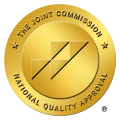- Our Services
- About Us
- Telehealth
- Resources
- Abstinence vs. Harm Reduction
- Domestic Violence – Effects – Treatment
- Understanding Health Disparities is the Key to Reaching Health Equity
- Facility & Staff
- How Nurse Practitioners Help Addiction Treatment
- Implement Pain Management Practices at Your Facility
- Trauma-Informed Care at Your Facility
- Accreditation for Addiction Facility
- Addiction Treatment Staff and Stress Impacts
- Substance Use Medical Billing Challenges
- Licensing Agencies for Treatment Facilities
- Treating Depression at your Addiction Treatment Facility
- LGBTQ+
- Veterans
- Addiction in Hispanic Community
- Pandemic
- Telehealth Services
- Addiction Treatments
- Dual Diagnosis
- Anxiety
- Trauma
- Patient Care
- What is Positive Psychology and How Can it Help Your Patients?
- Cultural Differences
- Emotional Abuse During Addiction Treatment
- Signs of Functional Alcoholism in Your Staff
- The Role of Pharmacology in Addiction Treatment
- Contact Us





